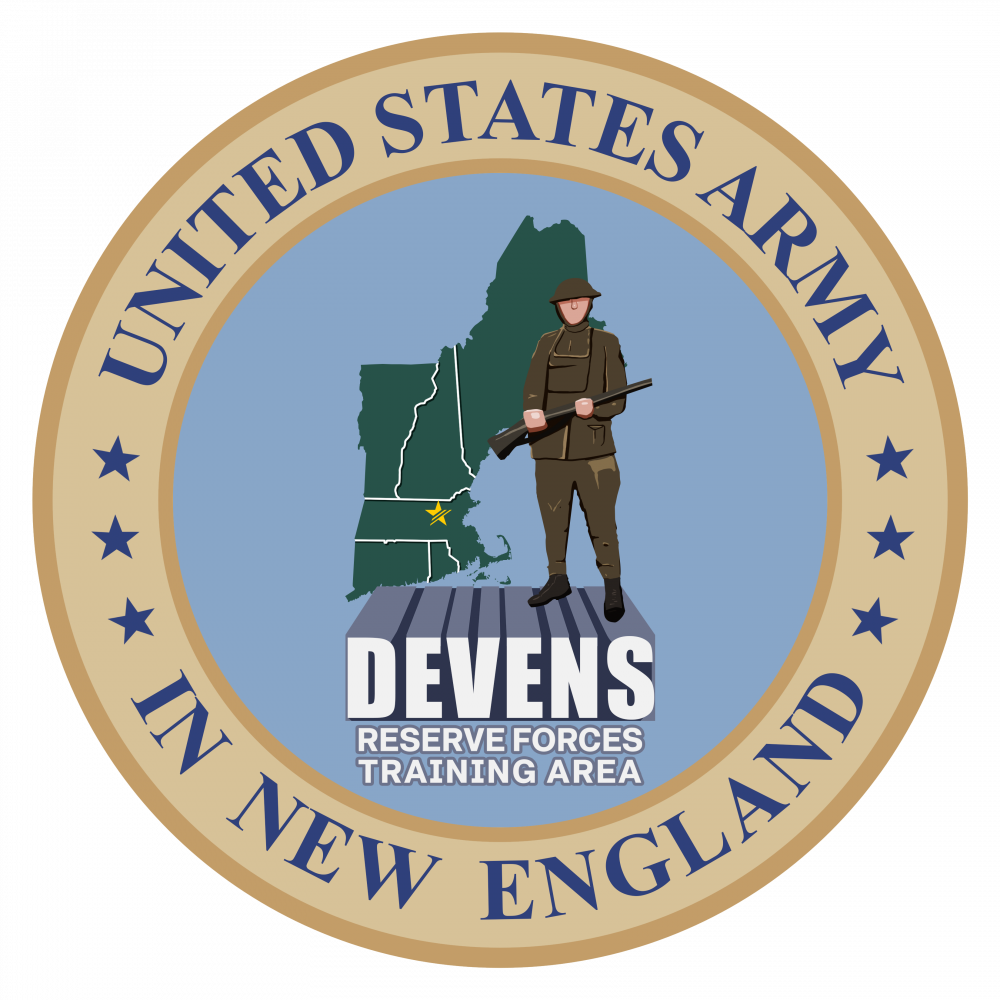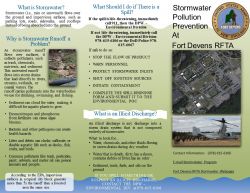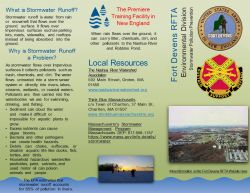What is Stormwater?
Stormwater (i.e., rain or snowmelt) flows over the ground and impervious surfaces, such as parking lots, roads, sidewalks, and rooftops instead of being absorbed into the ground.
Why is Stormwater Runoff a Problem?
As stormwater flows over surfaces, it collects pollutants, such as trash, chemicals, nutrients, and sediment. This untreated runoff flows into storm drains that lead directly to rivers,
streams, wetlands, or coastal waters. The runoff carries pollutants into the waterbodies we use for drinking, swimming, and fishing.
• Sediment can cloud the water, making it difficult for aquatic plants to grow.
• Excess nitrogen and phosphorus from fertilizers can cause algae blooms.
• Bacteria and other pathogens can create health hazards.
• Litter and debris can choke, suffocate, or disable aquatic life such as ducks, fish, crabs, and birds.
• Common pollutants like trash, pesticides, paint, solvents, and motor oil can poison animals and people.
How You Can Reduce Your Impact on Stormwater Pollution
At home, at work, anywhere!
• Pick up after your pet.
• Have your gutters discharge to vegetated or grassed areas.
• Reseed lawns to prevent sediment runoff.
• Compost or recycle yard waste.
• Use water-based paints and clean paint brushes in a sink.
• Deliver used oil to recycling centers.
• Use minimal amounts of fertilizers and pesticides.
• Consider using porous/permeable pavers when building patios and walkways.
• Clean up oil and chemical spills upon discovery. (Spills on the installation should be reported to DPW ENVR)
Help Reduce Bacteria and Pathogens in Stormwater!
· Pick up pet waste.
· Practice proper septic system maintenance to reduce bacteria and pathogens reaching
catchments and water bodies.
Help Reduce Phosphorus in Stormwater!
· Properly dispose of grass clippings in the spring and summer. Not down storm drains.
· Properly use slow-release and phosphorus-free fertilizers in the spring.
· Pick up pet waste all year long.
· Properly dispose of leaf litter in the fall. Not down storm drains.
What should I do if there is a spill?
If the spill is life-threatening, immediately call 911, then the DPW – Environmental Division
If not life-threatening, immediately call the DPW – Environmental Division 978-615-6106 or the DoD Police 978-615-6067
If safe to do so:
• STOP THE FLOW OF PRODUCT
• WARN PERSONNEL
• PROTECT STORMWATER INLETS
• SHUT OFF IGNITION SOURCES
• INITIATE CONTAINMENT
• COMPLETE THE SPILL RESPONSE FORM AND SUBMIT IT TO THE ENVIRONMENTAL POC
Questions about the USAG Devens RFTA Stormwater Management Program? Send us an e-mail at:
usarmy.devens.93-sig-bde.list.dpw-stormwater@mail.mil








